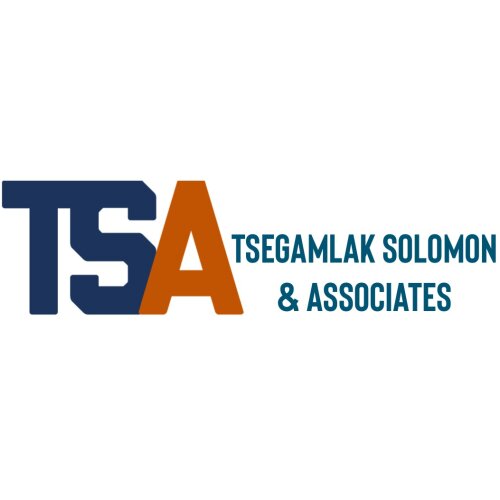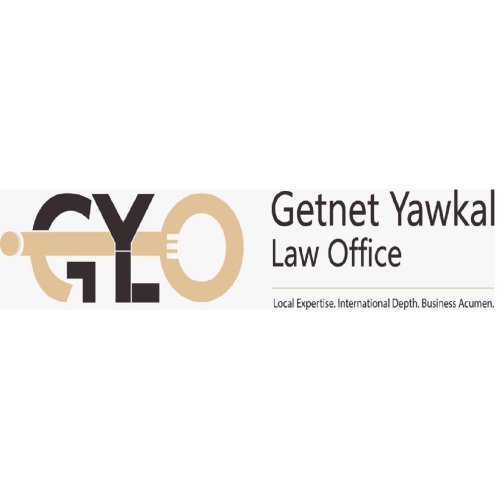Best Project Finance Lawyers in Ethiopia
Share your needs with us, get contacted by law firms.
Free. Takes 2 min.
Or refine your search by selecting a city:
List of the best lawyers in Ethiopia
About Project Finance Law in Ethiopia
Project Finance in Ethiopia is a specialized legal field focusing on the funding of long-term infrastructure and industrial projects. This method of financing is distinct because it relies primarily on the project's future cash flow for repayment rather than the balance sheets of project sponsors. Project Finance arrangements are common in energy, transport, manufacturing, and telecommunication sectors. In Ethiopia, the legal framework for Project Finance is shaped by local laws and regulations, which aim to encourage private investment while protecting the interests of all stakeholders involved. The sector has grown in recent years due to the country's development goals and its need for modern infrastructure.
Why You May Need a Lawyer
Project Finance transactions can be complex and often involve multiple parties such as sponsors, lenders, contractors, and government entities. Here are common situations where legal help is essential:
- Drafting and negotiating project agreements such as loan contracts, construction contracts, and operation agreements - Navigating the regulatory approval process with relevant government bodies - Understanding tax incentives, foreign exchange rules, and repatriation of profits - Managing risks related to land acquisition, environmental compliance, and local community engagement - Resolving disputes or restructurings involving financing arrangements - Advising on compliance with public-private partnership (PPP) laws and investment codes - Conducting due diligence to assess project viability and legal risks
Local Laws Overview
Ethiopian Project Finance operates under several legal frameworks, including the Investment Proclamation, Commercial Code, Banking and Insurance laws, and sector-specific regulations. Key aspects include:
- The Investment Proclamation encourages and regulates both local and foreign investments, offering incentives in priority sectors - The Commercial Code sets out the basic rules for company operations, contracts, and insolvency - Public-Private Partnership (PPP) Proclamation provides the regulatory structure for joint public and private investments in major infrastructure projects - Banking and financial regulations, governed by the National Bank of Ethiopia, oversee lending limits, foreign currency transfer rules, and loan security interests - Environmental and land use laws require compliance with impact assessments and procedures for the use of public land - Dispute resolution mechanisms provide recourse through the courts or alternative dispute resolution (ADR) platforms
Frequently Asked Questions
What is Project Finance and how does it differ from corporate finance?
Project Finance is the funding of large projects based on the future cash flows generated by the project itself rather than the overall creditworthiness of the project sponsors. In contrast, corporate finance is based on the entire company's balance sheet.
Can foreign investors participate in Project Finance in Ethiopia?
Yes, foreign investors are encouraged to participate, especially in priority sectors. However, they must comply with the Investment Proclamation and obtain the necessary permits from the Ethiopian Investment Commission.
Are there restrictions on profit repatriation and currency exchange?
Ethiopian law allows for profit repatriation and currency conversion, subject to regulatory approval and compliance with central bank guidelines. Documentation and timely reporting are required.
What types of securities or collateral are commonly accepted by lenders?
Lenders typically require assets such as project equipment, land rights, or other tangible property as collateral. Assignments of revenue streams or government guarantees may also be involved.
What kinds of infrastructure projects are eligible for Project Finance in Ethiopia?
Common sectors include power generation and transmission, water and sanitation, roads and railways, telecommunications, and manufacturing facilities. Eligibility depends on the project's scale and economic impact.
What is a Public-Private Partnership (PPP) and how is it regulated?
A PPP is a collaborative investment model between the government and private sector for large-scale projects. It is regulated by the Public-Private Partnership Proclamation, which outlines the roles, risks, and revenue-sharing arrangements.
How long does it typically take to close a Project Finance transaction?
The process can take several months to over a year, depending on the project's complexity, regulatory approvals required, and the negotiation process among stakeholders.
Are there any tax incentives for Project Finance projects?
Yes, the Investment Proclamation provides tax holidays, customs duty exemptions, and other incentives for qualifying projects in selected sectors.
Is government consent required for all Project Finance transactions?
Most significant projects, especially in infrastructure and utilities, require government consent or concession agreements. Approvals may be needed from sector regulators or the Council of Ministers.
Can disputes arising from Project Finance projects be resolved through arbitration?
Yes, Ethiopian law recognizes arbitration as a valid method of dispute resolution, and many Project Finance agreements specify arbitration locally or internationally.
Additional Resources
If you need more information or assistance, consider contacting these key organizations and governmental bodies:
- Ethiopian Investment Commission (EIC) for investor guidance and project registration - Ministry of Finance for information on PPP frameworks and fiscal incentives - National Bank of Ethiopia for regulations regarding foreign exchange and banking - Ministry of Justice for legal disputes and arbitration - Ethiopian Chamber of Commerce and Sectoral Associations for local business support - International Finance Corporation (IFC) and African Development Bank for project support in the private sector
Next Steps
If you need legal assistance in Project Finance in Ethiopia, start by gathering all project documents and identifying the key issues or questions you have. Next, consult a qualified lawyer or law firm with experience in Project Finance and a good understanding of Ethiopian regulatory frameworks. Schedule a comprehensive consultation to discuss your project's specifics and compliance needs. Be prepared to provide information about project partners, financing arrangements, and regulatory touchpoints. Finally, follow the legal expert's guidance on structuring agreements, securing permits, and managing relationships with government agencies to ensure the success and sustainability of your project.
Lawzana helps you find the best lawyers and law firms in Ethiopia through a curated and pre-screened list of qualified legal professionals. Our platform offers rankings and detailed profiles of attorneys and law firms, allowing you to compare based on practice areas, including Project Finance, experience, and client feedback.
Each profile includes a description of the firm's areas of practice, client reviews, team members and partners, year of establishment, spoken languages, office locations, contact information, social media presence, and any published articles or resources. Most firms on our platform speak English and are experienced in both local and international legal matters.
Get a quote from top-rated law firms in Ethiopia — quickly, securely, and without unnecessary hassle.
Disclaimer:
The information provided on this page is for general informational purposes only and does not constitute legal advice. While we strive to ensure the accuracy and relevance of the content, legal information may change over time, and interpretations of the law can vary. You should always consult with a qualified legal professional for advice specific to your situation.
We disclaim all liability for actions taken or not taken based on the content of this page. If you believe any information is incorrect or outdated, please contact us, and we will review and update it where appropriate.
Browse project finance law firms by city in Ethiopia
Refine your search by selecting a city.

















